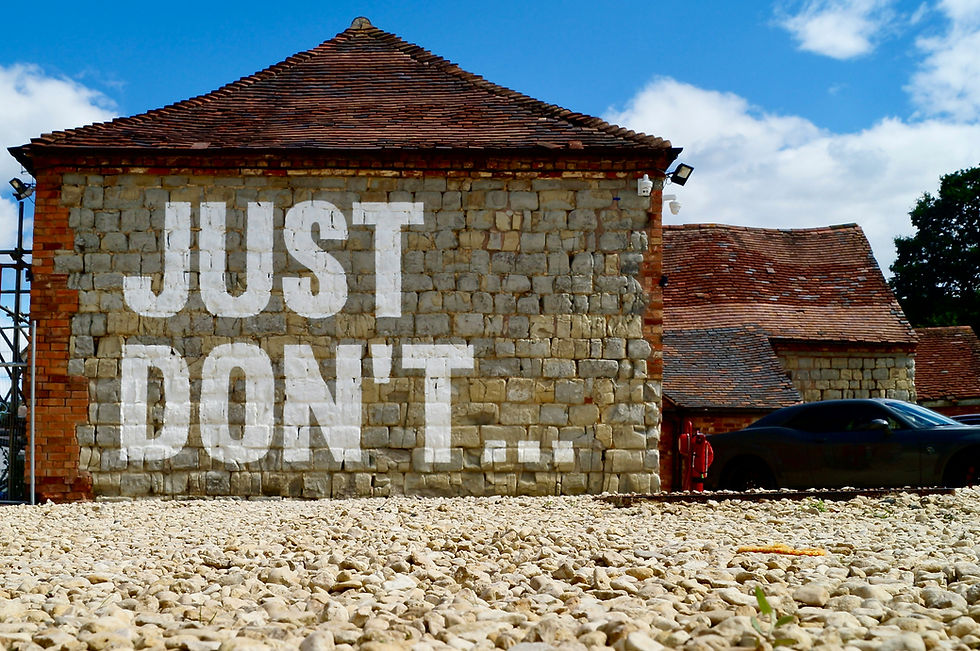Love Changed the Law—and Still Has the Power to Change Us All
- Jessica Kiragu
- Jun 12, 2025
- 3 min read
June 12th is Loving Day in the U.S.

Maybe you’ve heard of it. Maybe you haven’t. Either way, it touches all of us.
Back in 1958, Mildred and Richard Loving—she was black, he was white—were arrested just for being married. Their love broke the law in Virginia, and in many other states too. But instead of backing down, they stood up. They took their case all the way to the Supreme Court—and on June 12th, 1967 they won.
That win didn’t just open doors for interracial couples. It shook the whole idea that the state could decide who gets to love who, what families should look like, or whose relationships matter and were worth protecting.
Loving Day honors that fight. It’s not just about interracial love—it’s about freedom. It’s about noticing and unraveling all the -isms that try to divide us. And it’s about every kind of relationship—interracial, queer, chosen family, straight, married or not—being able to live and love just as freely as others.
But let’s be honest—the work isn’t done.
I’m part of a multiracial family, and even now, we still feel it—that sense of being watched, the questions that don’t always land with care, the way conversations shift or pause when race comes up. It’s not always harsh or hateful. Often, it’s subtle. But it carries the weight of something bigger. The reminder that whiteness is still at work setting standards and making rules.
And for those of us who are white, it can be tempting to believe that simply saying we love someone of color is enough. That if we care deeply, stay committed, or raise mixed kids, we’ve overcome race—overcome the influence that whiteness has on us and our world.
But love doesn’t undo what we’ve been taught or the systems we live in. Loving Day invites us to dig deeper.
Because love—real love—isn’t just something we feel. It’s something we live. Sometimes, it looks like showing up when it feels risky. Sometimes it looks like listening instead of defending. It means questioning the stories we tell. And, it means choosing justice—again and again—because the people we love live in a world that isn’t always just.
That’s why days like Loving Day matter. They remind us that love doesn’t have to fit inside the limits we were taught. Love makes space—it stretches. It doesn’t look away from harm, and it doesn’t stop when things get uncomfortable. Love pays attention. It asks hard questions. It works to undo the systems that make it harder for some of us to be safe, seen, and free.
It’s also a reminder—this kind of love wasn’t always allowed. Laws were designed to protect small, rigid notions of love. To say who could belong, who could build a life together, and who was even allowed to call it love. Some of the stories we’ve been told focused on certain voices and perspectives while leaving others out. And if we don’t question those stories, they stay with us, shaping how we see ourselves and the world.
So, we don’t have to keep telling those same stories.
Days like June 12th—Loving Day—can be a moment for us, especially those of us who are white, to pause and take stock.
How has whiteness shaped my ideas about what love should look like?What messages did I grow up with about what makes a “real” family?
And how do I show up—for the people I love, and for a world where love doesn’t have to fight so hard to exist?
Because where there’s harm, where there’s injustice—love isn’t neutral.
It has the power to challenge what’s broken. To interrupt what’s been accepted. To move us toward something more honest, more just, and more whole.
So today, we remember and celebrate the Lovings.
We honor all those who’ve had to fight just to love and be loved.
Not with hashtags or heart emojis—but with action, reflection, and a love big enough to move us closer to freedom for everyone.




Comments